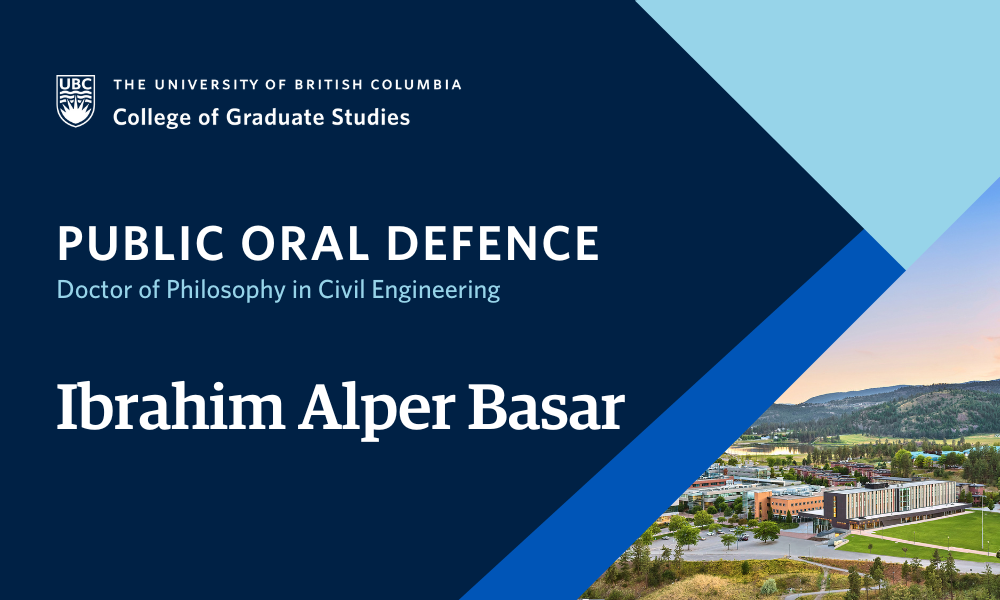
- This event has passed.
Dissertation Defence: Evaluation of On-Site Biological Treatment Options for Hydrothermal Liquefaction Aqueous Phase Derived from Sludge in Municipal Wastewater Treatment Plants
April 22 at 1:15 pm - 5:15 pm

Ibrahim Alper Basar, supervised by Dr. Cigdem Eskicioglu, will defend their dissertation titled “Evaluation of On-Site Biological Treatment Options for Hydrothermal Liquefaction Aqueous Phase Derived from Sludge in Municipal Wastewater Treatment Plants” in partial fulfillment of the requirements for the degree of Doctor of Philosophy in Civil Engineering.
An abstract for Ibrahim Alper Basar’s dissertation is included below.
Examinations are open to all members of the campus community as well as the general public. Please email cigdem.eskicioglu@ubc.ca to receive the Zoom link for this exam.
ABSTRACT
In recent decades, resource recovery and waste reduction have become the prominent focus to adapt urban technologies to the circular economy concept. From this point of view, municipal wastewater has been considered a resource rather than a waste stream. A thermochemical conversion process known as hydrothermal liquefaction (HTL) has emerged as a promising candidate for the valorization of municipal sludge, owing to its high energy recovery efficiency and potential to produce value-added products. The HTL process converts organic feedstock into a liquid biofuel called bio-crude via a similar process to the natural occurrence of petroleum by using near-critical water temperatures (250-374°C) and pressures (52-220 bars). The HTL process alone has the potential to reach over 70% energy recovery from municipal sludge in the form of bio-crude, and over 80% of by-products of HTL aqueous phase and hydrochar can be valorized. While the utilization of the HTL process seems promising, there are several challenges that need to be addressed to enable its seamless integration into wastewater treatment plants (WWTP). The most critical challenge is the treatment or valorization of HTL process wastewater, named HTL aqueous phase.
In this thesis, regression analysis was used to mathematically establish relationships between the HTL aqueous characteristics and the HTL reaction conditions. HTL aqueous obtained at temperatures ranging from 290 to 360°C and retention times between 0 to 30 minutes was found to contain chemical oxygen demand (COD) levels ranging from 87 to 103 g/L, total ammonia levels of 3.9 to 7.1 g/L, and total phenolics levels of 1.5 to 2.3 g gallic acid equivalent/L. The ultimate biochemical oxygen demand and biochemical methane potential values showed a positive correlation with the secondary sludge ratio in mixed sludge. Among the on-site biological treatment options, both aerobic and mesophilic anaerobic processes were identified as potential choices. In a continuous-flow aerobic treatment system, up to 79.2% of COD from HTL aqueous was possible to degrade. These findings suggest that on-site aerobic treatment is a feasible option for treating HTL aqueous in WWTPs, but a tertiary treatment, like advanced oxidation or adsorption, is necessary to eliminate the recalcitrant COD.